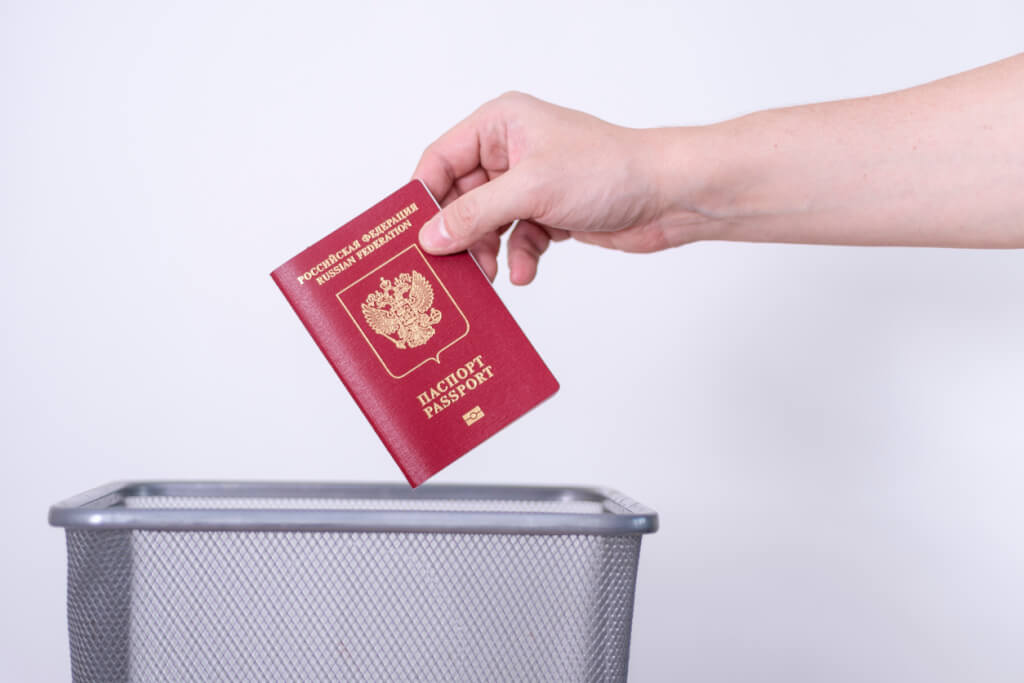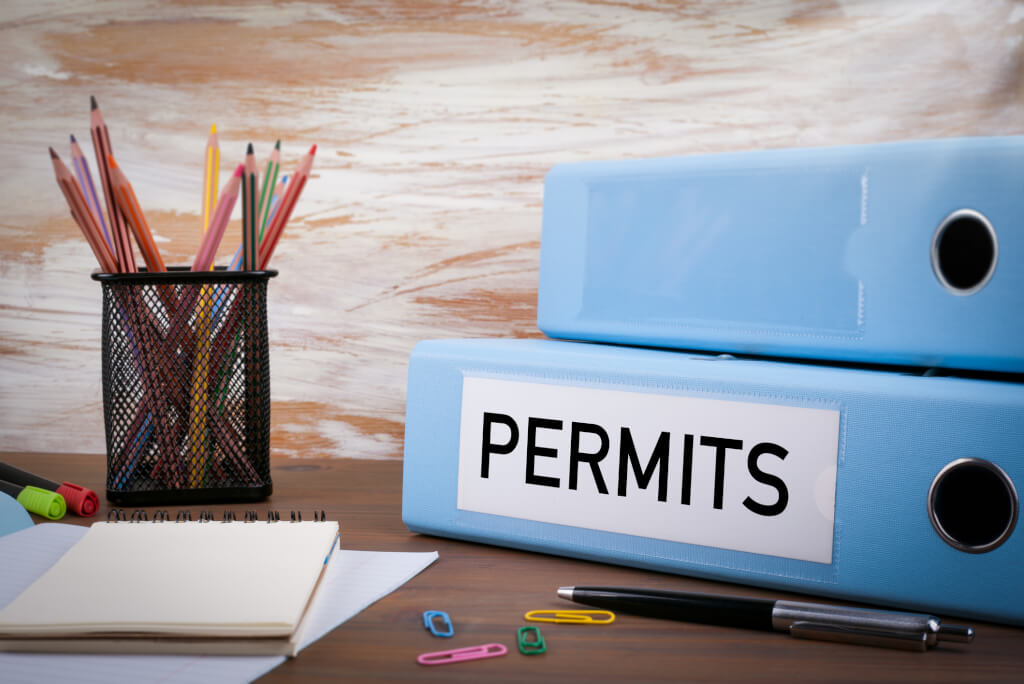How to Get a Green Card After Tightening Immigration Restrictions: a Lawyer Has Answered ForumDaily Readers’ Questions
The Trump administration over the past two years has implemented a number of restrictions that have complicated the process of obtaining a green card. It can be difficult for immigrants to keep track of all the changes, and sometimes the news are really frightening. For example, now potential immigrants may lose the right to receive a green card if they make even one error or typo in their application. At the request of ForumDaily, a lawyer Ekaterina Muratova, who has more than 15 years of experience in the US immigration industry, has answered our readers’ questions. The style of questions and answers has been saved.

An immigration lawyer Ekaterina Muratova. Courtesy: Ekaterina Muratova
Alexey: Hello, dear Forum Daily editors and Ekaterina Muratova! My daughter, her family and her husband (five people) are citizens of Russia residing in Kazan. My wife and I, three our adult children, and grandchildren live in the state of Washington and are U.S. citizens. How do we invite them for joint residence, what are the options for reunion — invitation, family reunification, other legal forms of relocation?What documents are required? What is the procedure? Financial matters: sponsorship or other forms? What is the duration of the process? What are attorney’s fees, other fees and expenses, how much can it cost us?
Ekaterina Muratova: You might invite them within a family reunification program. Since your daughter is adult and married, the waiting period for this category of relatives (F3) is quite long — about 12 years. For this reason, you might want to consider other immigration options, like business, work, etc., depending on personal situation of your daughter.
If you opt for family reunification, the documents required are your passports, naturalization certificates, proof of cozenage (birth certificate) and confirmation that you, the sponsor, will be able to support them financially in the U.S. if needed.
The procedure is as follows: you file an application with USCIS; upon approval, the case is transferred to the National Visa Center, where it is stored until the applicants’ turn to receive immigration visas; then the documents are sent to U.S. Embassy at your daughter’s location, and they are invited for an interview.
The entire process can take up to 12 years due to the annual quota for this visa category. The attorney’s fees range from $2,500 to $5,000, the state fees are about $ 3,500.
Irina: Hello! How this immigration toughening might affect the process of becoming a U.S citizen in the future? Can you help with proper filling of documents for naturalization? Many thanks!
Ekaterina Muratova:: Unfortunately, this toughening directly affects the possibility of obtaining citizenship in the future. A regulation has been adopted providing that if an application for citizenship is filled out incorrectly, including even a typographical error, and supporting documentation was insufficient in the opinion of an officer, the immigration department can immediately send a refusal to the applicant and close the case. Earlier, the applicant was sent a “request for additional evidence,” thereby was given a chance to make corrections and additions. So correct filling of all documents is crucial. We are happy to assist with proper filling, filing, and conduct of the case.
In addition, the government is currently considering a proposal to remove the so-called “excuses” and “exceptions,” like prior problems with law with subsequent rehabilitation, or a long stay outside the U.S. when the person had no intention of abandoning his/her residency in the United States. More consideration is now given to question whether there is a chance that the person with become a ‘burden for the state,’ meaning whether he or she will be able to earn his/her living or will resort to state aid and benefits.
Nataliya: Hi! I am a petitioner in a family reunification case I filed in March 2014. According to the California Immigration Center, my son’s case should have been considered by now (I’m watching the line). However, it’s been five months since then, and we have not received any notification. I wrote an official letter to the California Immigration Center and called them several times, but the answer is “Keep waiting.” My question is what are the time limits for obtaining a visa in a family reunification case for unmarried children over 21? Thank you!
Ekaterina Muratova: From 39 months to 50.5 months. You can (and should) file a request that your case consideration has gone beyond published dates so that it is referred to a supervisor. If you tried once but have not achieved the result, you should repeat. You can make an official request at the USCIS website once a month. Unfortunately, persistence is often required in such cases.
Ruslan: Hi. We applied for political asylum in 2016, and have been waiting for an interview for three years. The question is: my wife’s mother stayed in her home country, and she is not eligible for a U.S. tourist visa due to her age and health. Can my wife apply to the Immigration Service with a request to leave for her home country for one visit and be allowed back to the U.S.? Will this request affect the interview for the refugee status? Thank you.
Ekaterina Muratova: No, she cannot. She might apply for a document that will allow her traveling to a different country (apart from the one she fled) and then return to the U.S., it’s called Advance Parole. This will allow her seeing her mother in a third country, maybe a neighboring one to the one where her mother resides.

Photo: depositphotos.com
Lyubov: I have been married to an American for three years. I came to the U.S. with K1, the bride’s visa. I’ve had my ‘green card’ for two years now, and am expecting for a 10-year prolongation. While I’m waiting, how can I reunite with my son and bring him to the United States? What documents do I need to file?
Ekaterina Muratova: You may apply for a reunification with your son if he’s under or over 21 and not married. Unfortunately, there is no immigration category for married children of permanent residents. In the latter case, you are allowed to reunite with him only after you are granted the U.S. citizenship. If he’s not married, the reunification process starts from filing I-130 form with the USCIS. After approval, the case is transferred to the National Visa Center and stays there until your son’s line for immigration visa interview comes up.
Kseniya: How can I apply for a refugee status? Which form do I need to file for a refugee status in the U.S.? Can the procedure be sped up if there’s a life threat? Will I be able to find an immigration attorney that might help without a fee (I’m embarrassed to be asking, but the situation is hopeless indeed).
Ekaterina Muratova: It’s not clear where this person currently is. In Russian language, a refugee and in asylum might be two interchangeable terms… If you’re outside the U.S., the process is detailed here. You might ask for a compact procedure if the threat is grave and real.
If you’re outside the U.S., you should file I-589 form with USCIS, you can find instructions of their website. Currently, the cases are considered and interviews are appointed very quickly, within a month or two, depending on the state you’re in.
There are organizations in the U.S. that offer shelter to those seeking asylum. They mostly cover certain areas, like sex minorities, religious, etc. Such organizations operate in other countries; you have to look for one in your country if you’re not in the U.S. at the moment.
Anna: Hi, Ekaterina. We’ve stayed in the U.S. for almost three years now with L1 and L2 visas. The company promised to help with ‘green cards’ after three years, but the process has stuck at its first stage. We came to Ukraine to prolong our visas, but were rejected by the Embassy. Now we don’t know what to do. We left our jobs, a car, property in the States. Can we appeal the Embassy’s decision? Or do we have to wait one year? Thanks in advance.
Ekaterina Muratova: You might appeal the decision, or file a new petition with all supporting documents. L-visa is not a prerequisite to apply for a ‘green card.’ These are two different programs. In your case, there are several options of further actions.
Svetlana: Hi. After we become naturalized, we plan to invite our parents for permanent residence here. What is the best option: for them to come here and stay here over entire process, or stay in their country and wait for the results there? I heard it might be much faster if they are in the States when filing, but I’m no longer certain because of all the amendments. Thanks for your response.
Ekaterina Muratova: The process might be faster if they are in the States and file for the change of the status here. This will allow avoiding going to embassy and thus shorten the expectation time. In the rest of the process, staying in the U.S. will not affect their chances to get the documents.
Anonymous question: I am in the middle of the process of obtaining a permanent ‘green card.’ My temporary one expired in May 2018, and I had to file I-751 to receive a permanent one. The application was a joint one, filed by me and my husband. We both signed the form when we filed it in early summer. Now I’m considering a divorce because my American husband abuses me. He is threating to call off his signature in my documents. Due to this, I am looking for an immigration attorney who deals with cases like this one. What should I do to protect myself with legal means? Thank you for your assistance.
Ekaterina Muratova: You should not tolerate rude behavior towards yourself. The law provides for women in such situations to apply for a permanent resident status independently. You only need to prove that you married him with genuine purpose to create a family, and not for the sake of immigration benefits, and that you’re not separating over your fault. The genuine nature of the relationship can be proved with the same documents you prepared for your first interview to obtain a temporary ‘green card.’ The reason for the break-up can be confirmed with your testimony first, then with written testimony by those who evidenced your relationship, and with other facts in the case. It’s important to show the timeline and the details of the relationship.

Фото depositphotos.com
Timur: Hi. Does this immigration rules tightening concern immigrants who are about to extend their ‘green cards’ won in DV Lottery? I mean will they face any problems with prolongation (in case they have no problems with the law, of course)?
Ekaterina Muratova: I guess you’re talking about a new card after your 10-year card expires. The permanent resident status has no end date; the plastic card itself, known as the ‘green card,’ does not grant this status, only confirms it. That is, when you apply for renewal of your card, this is not extension of the permanent resident status as long as it does not expire. A person files for issuance of a confirmation of his status for another term, like you do with your driver’s license, for example. Therefore, in the absence of burdensome circumstances or if a person has not left his/her residence in the United States, he or she should not experience problems obtaining the document for the new term.
Svetlana: Dear Ekaterina, hello. Please advise on the following. Last year, I applied for reunion with my daughter. My documents are currently processed. May I use the services of Fidelis and will it affect receiving the ‘green card?’
Ekaterina Muratova: You have to show that you are able to financially support your relative whom you sponsor for the U.S. immigration. I am not sure about annual income to be eligible to use “the services of Fidelis,” but if it’s lower than required for your daughter’s immigration purposes, you’ll need another sponsor who is able to prove stable and sufficient income. The amount required depends on how many more people comprise the family of another sponsor or your one. More details and figures can be found here.
Yuliya: Please advise whether the procedure for being granted U.S. citizenship as a wife of a U.S. citizen three years after the first ‘green card’ is still in effect?
Ekaterina Muratova: Yes, it is.
Yuliya: I have been married to an American for three years now, and in several week’s I’ll be able to file for naturalization. But I haven’t yet received my permanent ‘green card.’ A year ago, I submitted all documents to exchange my temporary two-year card for a permanent one. A year ago I obtained I-797 form extending my status of conditional permanent resident for 12 months. Some time ago I received a new I-797 that extended my conditional permanent resident status for a total of 18 months since my ‘green card’ expired. Please advise: if I’m still waiting for the permanent ‘green card,’ am I eligible to apply for naturalization? Will I face any problems if I do? Thank you.
Ekaterina Muratova: Yes, you are eligible to apply for citizenship three years after obtaining your temporary ‘green card’ if you’ve been married to the same person during the entire period, and resided with him in the United States.
Dmitry: Hi. Is the rule of inability to apply for a status change within 3 months after entering the U.S. exercised in practice? Thanks
Ekaterina Muratova: You can apply for a change of status before the expiration of the three-month period after entering the U.S., it is not prohibited. However, if a person submits changes to the status shortly after entering the United States, there is a presumption that he/she has received the visa in a fraudulent manner with intentions different from those he/she provided to the consulate. The application of this presumption in practice to a particular person depends on the type of the case. For example, on whether this was the first entry in the U.S. under this visa, or whether it was a multi-visa and the person received it long time ago, and this is not his or her first arrival in the U.S., which suggests that circumstances could have changed over time. Also, whether the person applies for change of his/her status for another non-immigrant status or an immigrant one for family reunion, for example. Each detail of the case affects the answer to this question.
Anonymous question: I am a naturalized U.S. citizen. I’ve lived here for 16 years. Before arriving in the U.S., I used to live in Crimea. My adult daughter now lives there. I would like to bring her here. Will her case be considered given that Crimea is under sanctions?
Ekaterina Muratova: Is your daughter currently a Russian citizen? As far as I know, to get Russian citizenship, your daughter had to refuse her Ukrainian citizenship. Has she officially refused Ukrainian citizenship or not?
The U.S. does not recognize Russian citizenship of the Crimeans. Because of this, people who refused Ukrainian citizenship and received Russian passports in Crimea hold the so-called limbo status — they do not hold Ukrainian citizenship, and they cannot use Russian for immigration purposes.
Читайте также на ForumDaily:
“Extraordinary” green card: U.S. immigration options for entrepreneurs
An Immigrant’s American Dream: How to Open a Steakhouse in New York and Welcome Donald Trump There
We’re loosing it: Why immigrants’ children need Russian language
What It’s Like to Be a Retired Immigrant in New York
Athos, Porthos, and Atheist: Stories of Three New-York Homeless People from the Former USSR
Подписывайтесь на ForumDaily в Google NewsХотите больше важных и интересных новостей о жизни в США и иммиграции в Америку? — Поддержите нас донатом! А еще подписывайтесь на нашу страницу в Facebook. Выбирайте опцию «Приоритет в показе» — и читайте нас первыми. Кроме того, не забудьте оформить подписку на наш канал в Telegram и в Instagram— там много интересного. И присоединяйтесь к тысячам читателей ForumDaily New York — там вас ждет масса интересной и позитивной информации о жизни в мегаполисе.



















